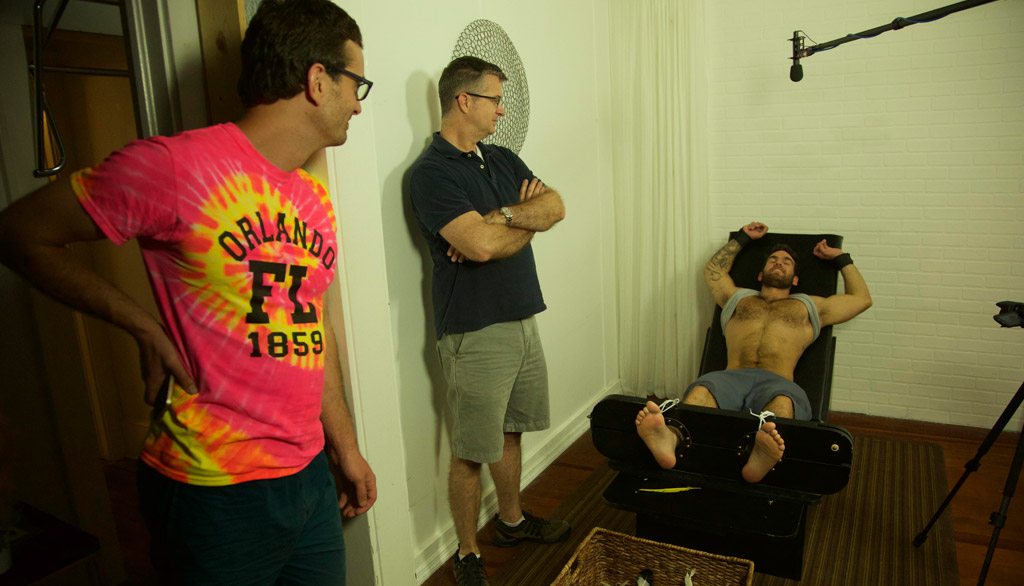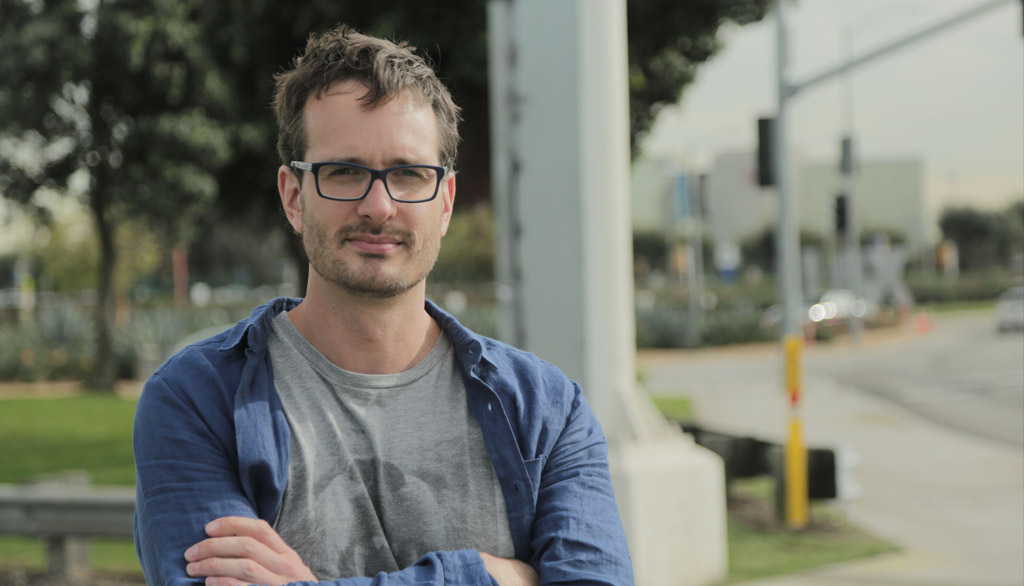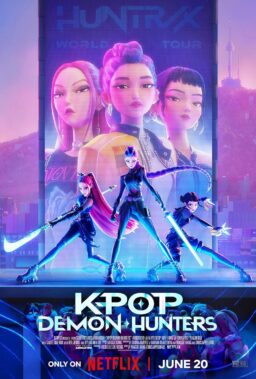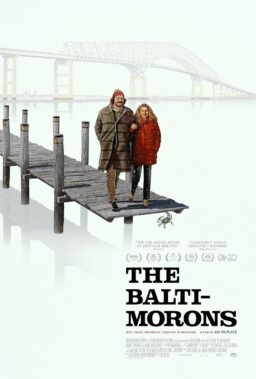“Tickled” is more than just a story about the world of tickling, but that of all-American bullying. What started as a curiosity by New Zealander journalist and co-director David Farrier quickly wrought a barrage of harassment and lawsuit claims, from who the hell truly knows where or why, simply because he and co-director Dylan Reeve tried to contact them. Obviously, aside from the unusual nature of something like a “competitive tickling” video (involving clothed young men tied up, tickling and giggling) it was a threat worth looking into.
What then resulted is one of the strangest documentaries you’ll see this year, a journey into different tickling media companies and the people, including ex-performers and a casting agent, that they have blackmailed and sought to embarrass with public accusations of perversion. “Tickled” takes on many layers, that of advocacy for those abused by such power, a story of violent self-shame about one’s own sexual proclivities, and even a type of culture clash between people of contrasting aggression—a vengeful sociopath of sorts (my words, not Farrier’s) and the targeted filmmakers from New Zealand who seem to be annoyed by his lawsuits most of all.
The controversy of the documentary continued this past weekend when co-director Dylan Reeve was confronted by lead subjects David D’Amato and Kevin Clarke at a Q&A, who accused the film of falsities and threatened that more lawsuits were coming, nonetheless while surrounded by a crowd of people who had all just seen the film. Clarke even operates a “Tickled” truther website, in which one of “Unethical David Farrier’s” subjects has since recanted his interview, along with other claims. (A video from the Q&A can be found here.)
RogerEbert.com spoke with Farrier about his film, its specific balance of comedy and tragedy, normalizing tickling as a fetish, the new controversy raised in part by using the phrase “off the record” in New Zealand and more.
What fascinates you about America?
I like the extremes here. Everyone takes everything to an extreme. In New Zealand we’re very low key and we’ll just all try and fit in. Here, everyone has got a thing, and then they take it to a whole other level.
What advice would you give us to not be extreme?
Oh, I think “find a healthy medium,” or “Don’t be scared of being different, but think, ‘Have I taken this too far?’”
I’m a big fan of America, I like how keen everyone is. The enthusiasm here is great as well. In New Zealand if you want to get something done, you’ll be like “Let’s run for a coffee, in a month.” And then you’ll have a coffee and be like, “Oh, that’s a cool idea, I’m gonna think about it and I’ll email you, maybe we’ll catch up sometime,” whereas here if you pitch something [in the US] at midnight the next day someone is like, “Let’s try it! Let’s make this happen.” And that’s what I love about America.
Was there originally more footage of you guys in this adventure?
Yeah, we shot a lot of the journey. We always knew going into shooting that it needed to be, because Dylan and I were both drawn into the story and we were both getting legal threats, we had to be a part of it, so we just wanted to figure out how much a part of it we were. At the end of each day we’d just film us chatting about the day and what happened, and as we’d be driving we’d be talking all of the time, but there were more things happening in real time around us, and we’d rather show us than have us in it.
And you wanted a 90-minute cut.
Oh yeah. It’s not “Lord of the Rings,” or “The Hobbit.”
What were some influences on the film when you were making it?
I guess “Biggie & Tupac,” I think was the movie I looked for, and I love all of [Nick Broomfield’s] stuff. But it’s a movie I’ve always respected because it’s a journalist or a documentary maker involving himself in a story and it just doesn’t come across as this pretentious, look-at-me fest. I’m a big fan of “The Imposter,” it has amazing recreations in there and I hadn’t worked with recreations before, and just the way it was shot was a great reference point for our DP as well. These big, beautiful interview shots. And I think all of us are probably obsessed with “Serial” and “The Jinx,” but thinking about how to tell a story in a way that’s longer than a minute and a half, and the idea of taking the audience on the same journey that we went on. Because the whole thing starts quite light, which was how it started for us, and it just started somewhere very different.
Your DP, Dominic Fryer, did a great job here.
He is great. And he used a lot of Wes Anderson’s films as a touchpoint visually. Probably everyone uses [Anderson’s] films, but just in the sense that we tried to shoot the cities in a way that hadn’t been necessarily been seen before, lots of symmetry going on. “The Grand Budapest Hotel” was a big touchpoint.
Do you think it’s an inherently American legal reaction you’re finding yourselves in the middle of? Would it be different if D’Amato was a New Zealander?
We don’t sue each other in New Zealand. And if we do, there’s an extremely good reason, and it’s all reasonable, most of the time. But the extremes could only happen in America.

How did the course of events inform the editing process?
Our narrative is the order things had happened in, with some things being tightened into 90 minutes. That in a way was kind of unbelievable, there’s a bit in the film where we find these documents, and it’s too good to to be true—I feel the same way. But it happened at a time when we needed to find them. And so many things happened like that, just the right time. And a lot of things happened in the last five minutes, and that all happened as it happened.
Tone is a huge thing for “Tickled,” because it’s funny but you’re not turning people like David into clowns.
That’s the way I’ve always treated my TV stories, to be a bit irreverent and to be serious but not too serious, to be funny but not too funny. And so I think that translated into the film. But also, we’re all aware that this whole thing started as a bit of a joke. It was in the newsroom when I saw the video. I was laughing, like “What is this? This is the funniest thing I’ve seen.” And then it got darker and darker as time went on, and then when I was in Muskegon, I wasn’t finding things very funny and I think that translates in what happens as well.
Some of the notes are not what you’re expecting when watching a movie like this.
We weren’t expecting that to happen. There are some inherently funny parts, and you have to remind yourself that there are funny parts, but I think the darkness is probably highlighted as well by the humor. It’s not like we start in this dark place and end in this dark place, and you leave the cinema just being depressed. I think people go on a bit of a ride.
The scene in “Tickled” with Richard Ivey, a tickling entrepreneur, seems important to the film to not demonize the fetish. And you even provide porn-like music and slow motion during an extended tickling scene.
At some point in the film we needed to acknowledge that tickling was a fetish, and so we met a tickling fetishist. And the intent was to get into his head, and find out why it was interesting to him, and also show that it’s fine to be into whatever you’re into, as long as you’re not hurting other people. And Richard’s great. He’s been to some of our screenings and people go crazy. They stand up for Richard! He’s very mild, he’s very normal. We wanted to show that we’re okay with it, you should be okay with it. It’s not a big deal. Just tickle and be happy. And the tickling community is very vocal. They were like, “Are you out to take the piss out of us? Are you out to mock us?” Very defensive. And that highlighted it for us that we needed to be aware of that, and not demonize them.

I have seen the recent Q&A footage where subject David D’Amato shows up, along with another subject from the film, Kevin Clarke, a producer of the tickling films.
Wild, right? It’s kind of a sequel. Having all of the key players turn up and take part in a Q&A and try to discredit us live was absolutely mad. Essentially we were threatened with more lawsuits in front of an audience. We never could have imagined that. Things have been happening the whole time, like Kevin came to Sundance and was taking notes, and there were a couple of private investigators sent to the True/False film festival in Missouri, who were trying to film out of a coffee cup.
Hey, they stole your idea!
Fucking crazy. That’s pretty surreal. I just wondered what would happen next. It just opened, we’re coming to more and more cities, and I can imagine these people getting more irate about the situation.
And you have that protection of doing this out in the public, where everyone can see everything.
This is a story about bullying. And the whole idea of Dylan and I, part of the reason we made the film was to expose them, and put it out there. So hopefully it will stop. And in being so public about it ourselves, they used to do it to people who were private and shy, but now they’ve got people like me, you can Google me and there’s nothing to be exposed. I can’t be manipulated. I think that’s a new thing for them. Even today, a lot of the victims are shy and don’t want to be seen as gay. A lot of the manipulation that this company does is based around picking on people’s insecurities or societal things that aren’t seen as right. Where as me, I don’t care what people say about me, so I can just proceed.
I take it you’ve seen their truther site TickledMovie.Info?
Yes, Tickled.Info is amazing. It’s like what Scientology has done, they make a website to discredit the films, they’re tweeting people and reviewers saying “Look at this, it’s great.”
You use the word victims, so can I say the word “abuse”?
It’s abuse of power.
But you’re bringing this to the spotlight, and it is allowing people to be open about it, it’s an unexpected layer of advocacy.
When we’re putting this out in the light, it’s contextualizes it for people who have already been through this craziness, and people have gotten in touch with us and have sent us a specific email: “I feel a sense of closure, that’s what has happened to me.” And that was fascinating. We hope it will provide a context for people in the video, so if people ask why are you in this tickling video, they can point to the film and it explains this whole thing. They have been tricked and victimized.
We’re talking about extremes, and about bullying, so I have to ask. Do you think, as an outsider looking in, that Donald Trump could be elected President of the United States of America?
I hope not. He could. He might. All the steps along the way, you keep thinking, “Oh, he can’t. Oh, he can’t.” He wins every round. Because your political system is very confusing, it’s very different to the way we operate. If Donald Trump becomes president, I think America needs to take a long hard long at herself and sort some shit out.
His behavior seems parallel to this movie.
Hey, Donald Trump likes to sue people. Power and control, that was a big theme in the film, and it’s funny that we’re here putting the film out when Trump is in full swing. I drove by Trump Tower the other day—is it true that the “T” dropped off, and it was “Rump” for ages?
I couldn’t say.
That seems too good to be true. A “T” doesn’t just drop off! I guess if [his presidency] happens, there will be some sort of wake-up call. If he becomes president, I like to think people would. I’m not going to call Trump [we went off the record] … but if it happens, I would hope people realize their mistake and something changes.

The power of “off the record,” is that something you’ve been aware of with documentary subject Kevin, who claims to have used the phrase in one of your first meetings with him? “Off the record” is like his magic phrase.
Oh, completely. I mean, I’m sorry, in New Zealand we have a one party situation where as long as one of you knows you’re recording, you’re allowed to record. I’m sorry, but I’m going to record you.
That’s such an interesting dynamic, especially when you first meet him, from the beginning he doesn’t want to be recorded.
But with Kevin, he’s doesn’t want to be recorded, yet he’s turning up at one of our first screenings in Los Angeles, where there are cameras everywhere. Maybe they’re just attention seekers.
Is it a particular advantage to having these lawsuits all out in public?
Definitely, there’s nothing I’m hiding. It’s just annoying having to deal with them, because it’s time. No one wants lawsuits in their life.
Did you have a lot of lawyers vet your different cuts?
Oh yeah, of course, fuck yeah. To get into Sundance, we made sure that we had it all vetted and everything.
There’s even the recent question about one of your subjects, Jordan, who is now prominently featured on Tickled.Info “recanting” his interview with you that’s featured in the film. What’s your official statement on that?
Um, “watch the film, and decide for yourself.” You can watch what Jordan told us, and you can watch all of these videos that have been created. It’s all there, it’s on-screen.
People want to poke holes in your story, certainly. Or, prey upon our susceptibility to not trust journalism.
I’m totally into people trying to poke holes. A few people have said to me, “Are you going to sue this website?” because they said I was smoking drugs and partying while on the shoot. And I’m not going to sue them, that didn’t happen. In my mind, if it’s all out there, that’s the joy of the internet. People can untangle this information and decide what they want to think about it.
And you know what you did is all true.
If you’ve got the truth on your side, it kind of makes things much easier.












